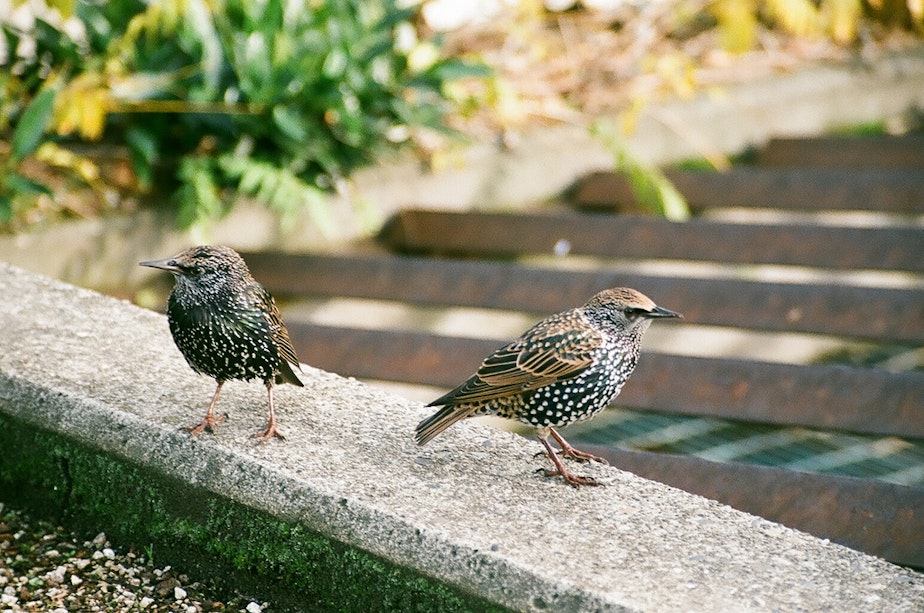Birds Of A Feather Sometimes Get Divorced

Sometimes, birds get divorced.
“If you've had poor reproductive success with a particular mate, maybe it's better for both members of that pair to seek new mates or new territories with new mates,” said John Marzluff, a professor of forest sciences at the University of Washington. He’s the author of “Welcome to Subirdia.”
That’s how birds have divorced throughout history.
But birds have been separating more in the last 10 years in the Seattle area, Marzluff told KUOW's Jeannie Yandel. That’s because birds have been pushed out of their natural habitats as forests have been developed.
It’s pronounced on Seattle’s Eastside, particularly the Issaquah Highlands, North Bend and Woodinville, he said.
Sponsored
“We remove some of their habitat; they leave and go to a new place, and they don't appear to do so as a couple,” Marzluff said. “Instead, one of them goes, or they both go different places. They end up in a new spot with a new mate. So they've divorced, because we know their other mate was still alive.”
It’s been a tough adjustment for some birds, such as the Pacific wren and Swainson’s thrush. Marzluff calls those birds “avoiders,” because they tend to leave developed areas.
Marzluff found that birds that separate naturally – because of fertility woes, for example – tend to fare better than those forced apart by human activity. Even if they find new mates, they’re not able to produce successful young as well.
But not all birds are upset by growth in the area.
“If you ask the overall bird community, it's a benefit,” Marzluff said. “We actually increase the diversity of birds that live in those forested areas.”
Sponsored
Manmade structures like retention ponds, ball fields, golf courses and parks have allowed certain bird species to flourish, Marzluff said.
"It's a richer community, so it's one for people to celebrate and interact with,” he said. “But it's different than what would have been here if it were all relatively undisturbed forest. It's hard to say if it’s good or bad.”

